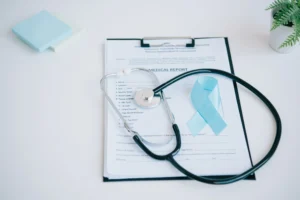
Common Reasons for Loss of Appetite After Cancer Treatment
After cancer treatment ends, many patients find that “appetite just doesn’t come back”:
food looks unappealing, a few bites feel filling, or even the smell triggers nausea.
This is not due to “lack of effort” — it is the result of treatment affecting multiple body systems and temporarily disrupting appetite regulation.
Understanding these common causes can reduce self-blame and open the door to more targeted ways to improve.









-300x200.webp)